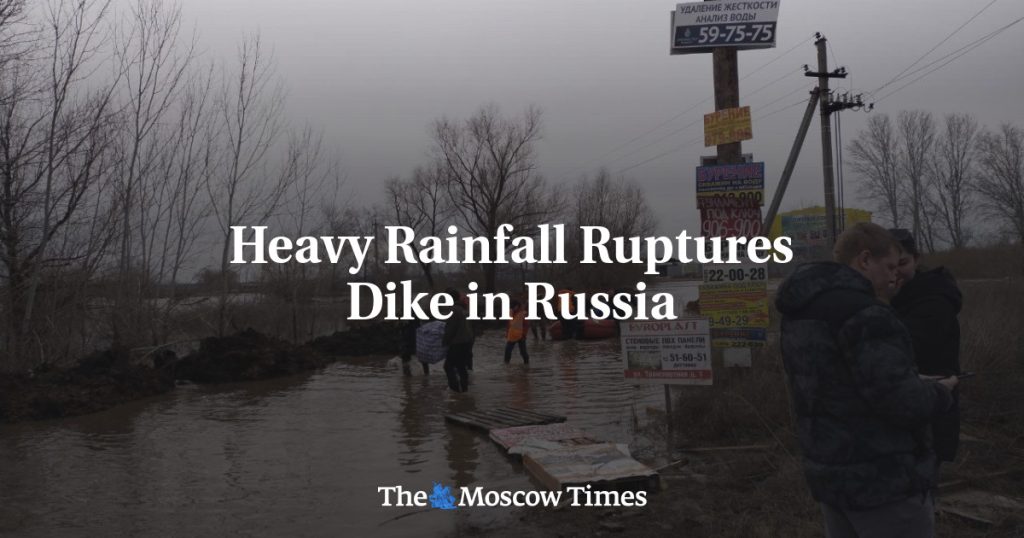Massive rainfall in the Russian city of Orsk has caused a dike to rupture, leading to urgent evacuations of over 10,000 people and more than 4,000 houses in the affected area near the Kazakhstan border. Local authorities have requested residents in certain streets to evacuate and rescuers are working to repair the dike in the city of 220,000 residents. The Orenburg region has been hit hard by heavy rainfall, resulting in flooding of over 1,800 homes in 95 localities and evacuation of more than 3,000 people, according to the governor’s press service.
Extreme weather events are not uncommon in Russia, and climate change has only worsened the situation. The country is regularly impacted by floods, storms, and other natural disasters that have significant impacts on its population and infrastructure. The recent rupture of the dike in Orsk is just one example of the kind of devastation that can occur as a result of heavy rainfall and flooding. It is important for authorities and residents to be prepared for such events and take necessary precautions to minimize the damage and ensure people’s safety.
The rapid response to the dike rupture in Orsk highlights the importance of emergency preparedness and the quick mobilization of resources to address the situation. Evacuations were carried out promptly to ensure the safety of those at risk of being flooded, and rescuers are working to repair the damaged dike to prevent further damage. The coordination between local authorities, emergency services, and volunteers is crucial in effectively responding to natural disasters and ensuring the well-being of affected communities.
The flooding in the Orenburg region has had a significant impact on thousands of residents, with many forced to leave their homes due to rising water levels. The scale of the disaster underscores the importance of investing in infrastructure to better withstand extreme weather events and mitigate the risks of flooding. Climate change is leading to more frequent and severe weather events, making it essential for governments to take proactive measures to protect vulnerable communities and reduce the impact of natural disasters.
As Russia continues to grapple with the effects of climate change, it is crucial for authorities to prioritize disaster risk reduction and resilience-building efforts to protect communities from future events. This includes investing in early warning systems, improving infrastructure, and enhancing emergency response capabilities to limit the impact of extreme weather events. The recent dike rupture in Orsk serves as a stark reminder of the importance of climate adaptation measures and the need for coordinated action at all levels of government to address the growing threats posed by climate change.
In conclusion, the dike rupture in Orsk and the widespread flooding in the Orenburg region are stark reminders of the vulnerability of communities to extreme weather events exacerbated by climate change. It is essential for authorities to take proactive measures to prepare for and respond to such disasters, ensuring the safety and well-being of residents at risk of flooding. By investing in disaster risk reduction and resilience-building efforts, Russia can better protect its population and infrastructure from the impacts of climate change and mitigate the risks associated with extreme weather events in the future.


